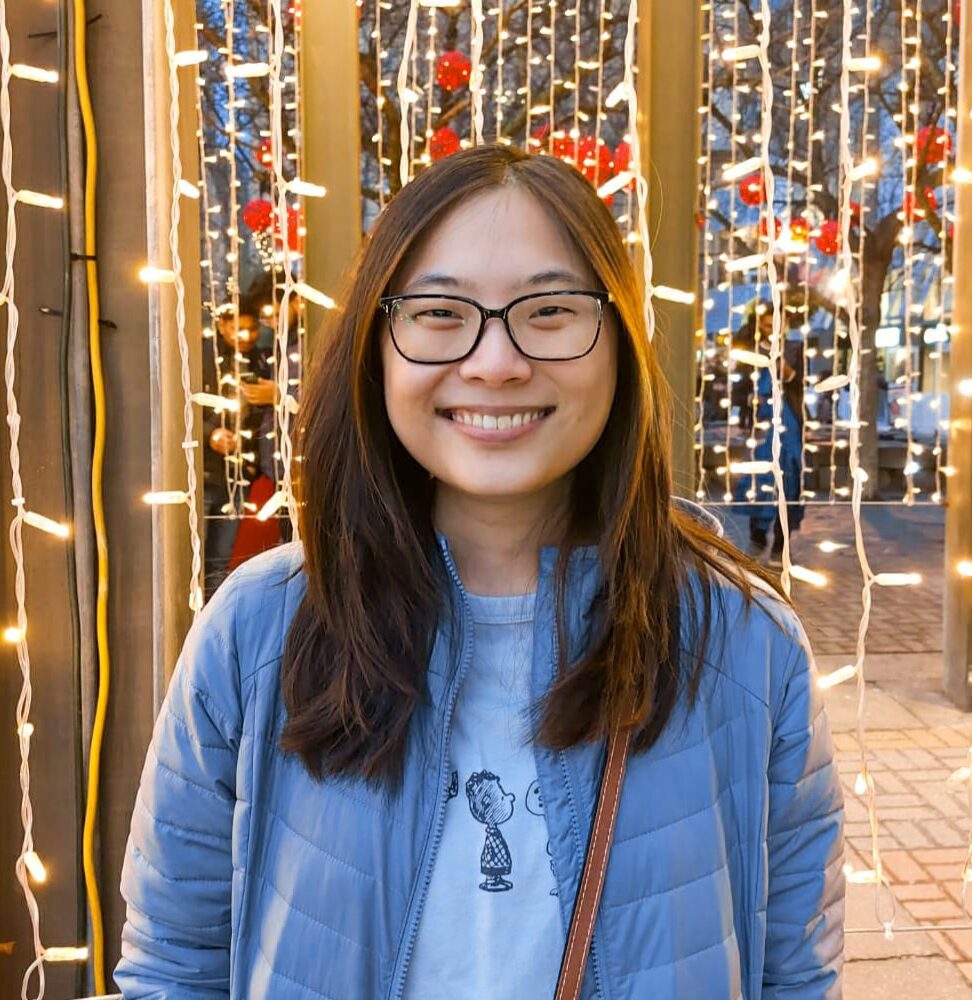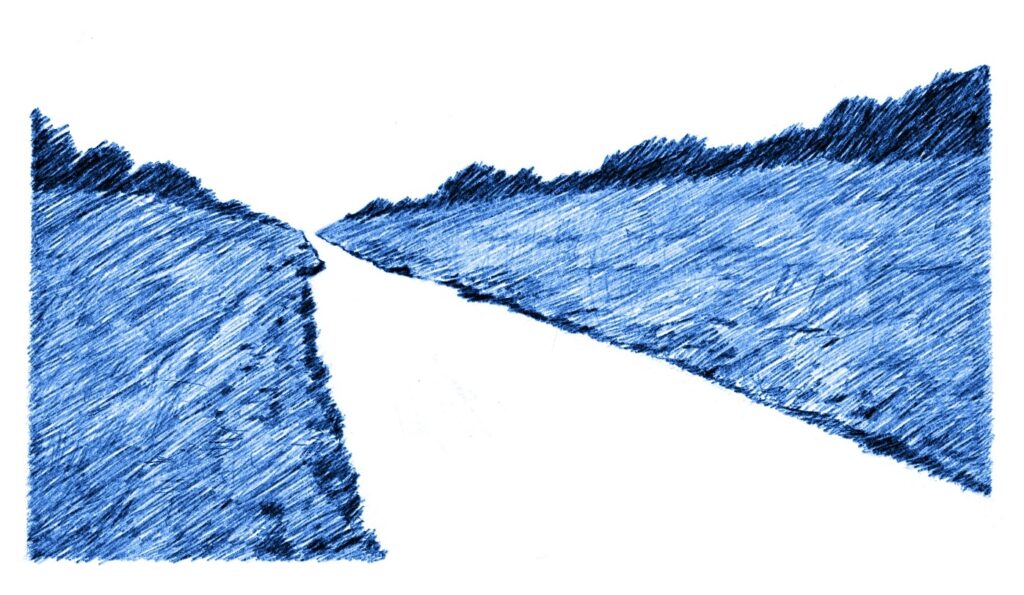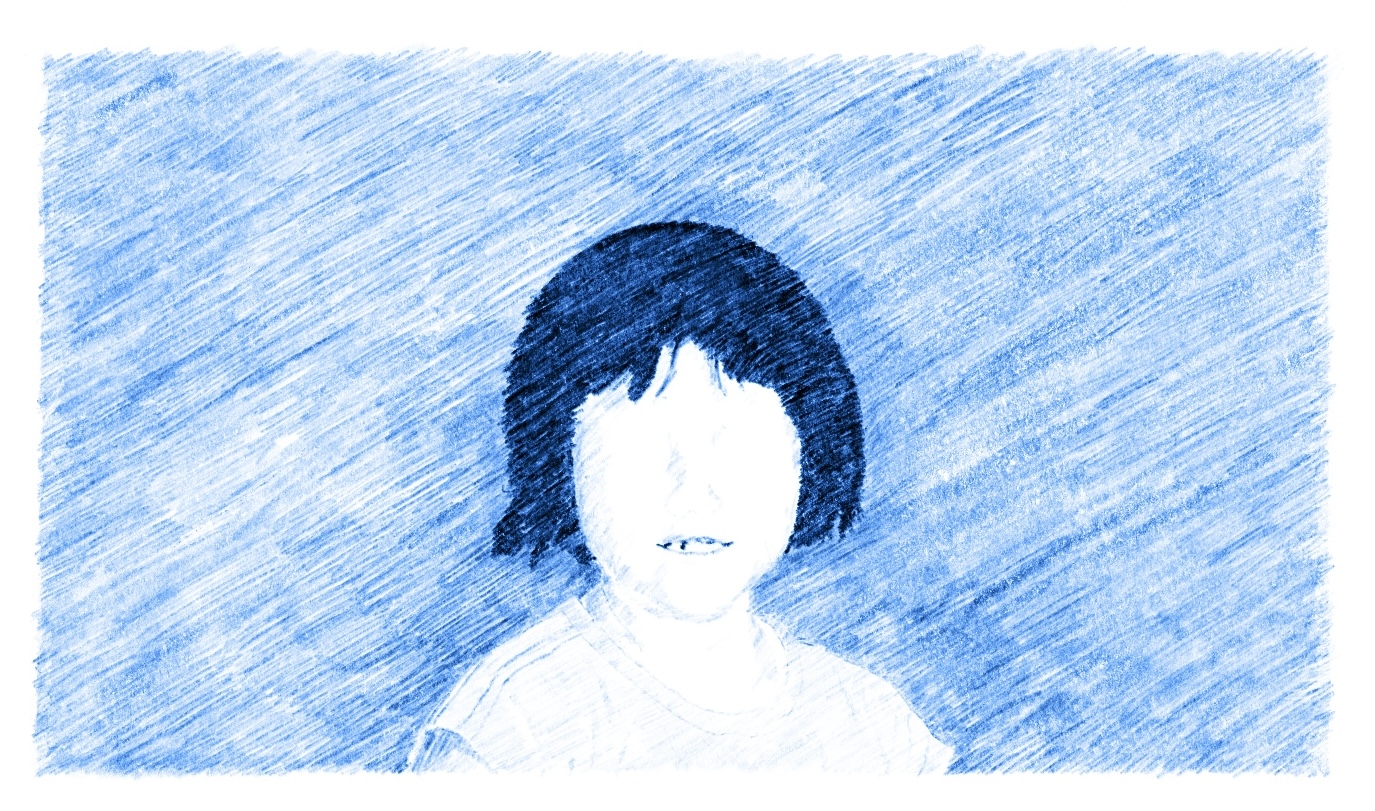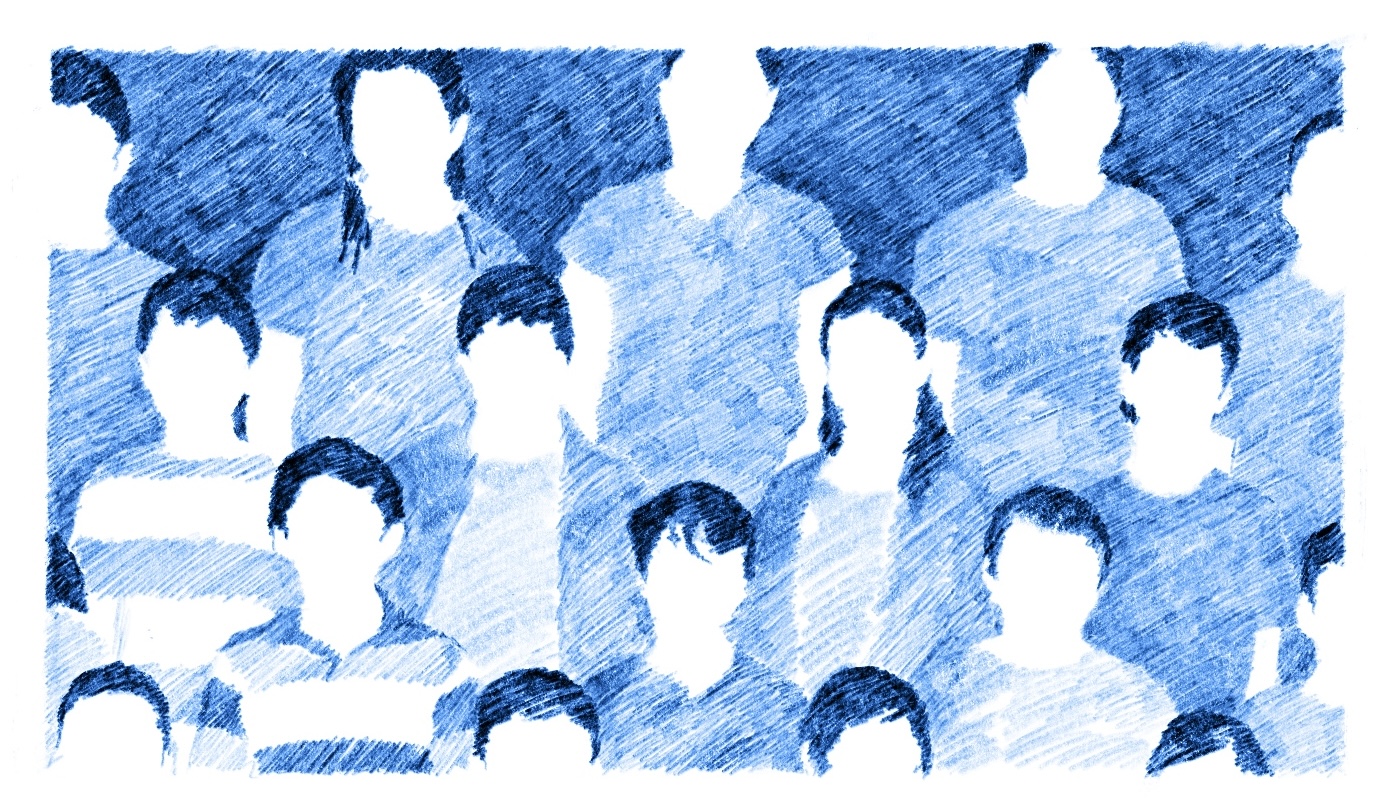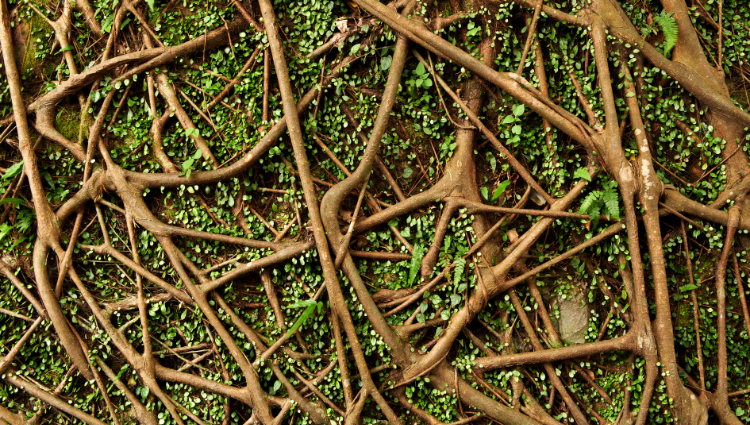Marie Reine de la Paix is grandiose. Topped with a marble statue of Mother Mary, it looks more like a stage than a church. It is situated at the top of a neat grassy hill, so you are forced to look up to see the titular Queen of Peace. At night, with the galaxy as her backdrop, she stands out among the stars. Her eyes are turned upwards and her hands cradle an orb crowned with a cross. The orb represents the Earth. She looks over Port Louis, the harbor capital of Mauritius. Under her eyes, in the distance, the town swells with heat and humidity.
My grandfather used to do his homework under the streetlights around Marie Reine de la Paix. Back then, in the 1930s, it was the only place in his area that had electricity. Power courtesy of the matriarch, I suppose. Such a theatrical place is reserved for only the finest of celebrations.
His sister now lives in the house facing the hill. Back in September 2019, I had the luxury of attending Pope Francis’ mass from the comfort of her home.
From the balcony, I looked down on the crowd. A colony of ants, all dressed in white.
Growing up, I would accompany my grandma to the pagoda once a year. She made a promise to an idol in exchange for a service and had to give thanks every year after that. The deity we visited was encased in a glass cabinet. I could never remember her name, so I was told to think of her as the Buddhist Mother Mary. She wore a white veil, and her lips were red as the apples we put in front of her. Oranges, plums, apples, biscuits—the offerings were all placed in threes on worn out red plastic plates, under semi-transparent clouds of incense.
During our 2019 visit, nine months before we’d see the Pope, my mom told me about the time my dad had made a request to another idol at the same pagoda. It had been denied.
“That’s mean,” I joked as I pointed to the statue.
My mom’s eyes widened, even though her eyebrows pressed into each other. I don’t know how she did that. She grabbed my forearm, her chipped scarlet fingernails clawing into the firm flesh. Her voice deepened noticeably, and when she spoke, it sounded like her throat had squeezed into itself.
“Apologize,” she ordered, “Apologize now.”
I rationalized that we went to the pagoda for traditional duties, not out of belief. We were the only ones there; there were no Buddhists around. I had offended no one. Mom squeezed my arm harder. Defeated, I bowed down to a deity neither of us believed in.
Five years later in Toronto, on the other side of the world, I can still make out the burning imprint of my mom’s fingers on my arm if I focus hard enough. I thought it was rage she felt that day, but I know otherwise now. The Catholic brain is trained to expect punishment. Ask for forgiveness, lest you lose God’s protection. It was another feeling, but like rage, it was real and hot and ugly. It was fear.
Along with Marie Reine de la Paix’s Mother Mary, flags towered over the crowd. The Vatican’s flag, white and yellow. The Mauritian flag, red, blue, yellow and green. Sunshine and rainbows.
A mosaic of hues, with the purest white as the unifying factor.
The Pope would be there anytime now. The crowd hummed in anticipation, waving their palm leaves. A colony of ants hard at work. Under my feet, I felt the vibration of the people’s excitement.
Just one caveat: a drizzle. A quiet, but persistent rain. Rhythmic enough to be threatening. Not quite a flood, but not ideal for an open-air celebration.
People had lined up along the city streets, ensuring the Pope’s whole trip would be filled with acclaim. His escort vehicle’s movement had a domino effect, with cheers rippling through crowds as it drove around. On the hill, I heard him coming before I saw. It started as a whisper, slowly rippling backwards through the crowd towards me. And then, all at once, the crowd exploded. The screams were coming from below, but they were so loud they enveloped me. The sky itself quivered. It felt like a collective See Francis? This is how we welcome you.
A white pickup truck came into view, with a makeshift cage of steel bars at its back. A miniature podium in a truck’s boot. The Pope Mobile, Mauritian edition.
Inside of it, the man. In his white robe, he waved at the crowd, with a look on his face I could only describe as loving. His white robe widened his shoulders and swayed as he turned here and there, waving at the crowd. He wasn’t hunching like the other eighty-year-olds I knew. From afar, I could not see his expression, but somehow I knew the look on his face was loving.
Behind him, the sun showing its face. I swear it was smiling—blinding like a grin full of teeth.
The Pope brought the sun with him, and it would never set again.
The only thing I liked about mass growing up were the songs. Not the traditional ones though. I still despise the hymns and laments they chant at the Vatican. Whenever the KTO channel is on, I leave the room.
The church songs I grew up on had séga tunes, and often Kreol lyrics. We did little dances, lifting our arms in praise, waving them rhythmically. Sometimes, we would—God forbid—clap along. Following along to the lyrics on the projector improved my spelling skills. I even sang in Hakka for special Chinese New Year church celebrations, back when I was in a choir. I cannot speak Hakka at all, we lost it through the generations. I still have no idea what the words meant individually, but I know they were all songs of praise.
My favourite church song is in French though, and while its tune resembles a lament, the lyrics make up for that. It is called Couronnée d’étoiles and I often find myself humming a particular line in the chorus. Couronnée d’étoiles, la lune est sous tes pas. Crowned with stars, the moon under your feet. It is reverent in the way only religious songs can be. The song is, unsurprisingly, dedicated to Mother Mary.
Palm leaves floated over the sea of heads. The choir danced. The people sang. The song had been written specifically for that event. The air was swelling with Kreol words, lyrics swirling around endlessly.
Ene soley apé levé lor nou péi. The sun is rising on our country.
A self-fulfilling prophecy.
The balcony I was on made me a mere witness to the spectacle of religion. Like a scientist studying an ant colony, I observed the behaviors in sight. Every person in the crowd was a little sun, their joy so bright it erupted in front of me.
I yearned to join, to be so exhilarated my body could explode.
Instead, I stood and stared. In awe, or disbelief, or both.
In my earliest memory of church, I poked the flabby flesh under my mom’s arm.
“Is mass over?” I asked over and over, because I didn’t know how to read the time yet.
When my mother got tired of answering, I fixated on a spiderweb sprouting from the bottom of a Pacific fan. I tapped my feet on the dusty knee rest, which had the feel of felt on a billiard table. I pressed the back of my hand against the wall: it was stone, cool like the bottom of my pillow on a stifling summer night. The church my family went to was designed to feel like a cave. It was dark inside, but in the way that made it feel like a secret gathering.
This is how I spent my Sunday mornings as a kid: witnessing rituals. Stand, sing, sit, listen, stand, walk, eat wafer, walk back, kneel, sit, pretend to listen. Once you’ve done something often enough, it loses its meaning. I resented the boredom of those rituals. Rituals for religious figures that looked nothing like me.
I wondered if God got bored too. Faith seemed too big a word for these little things.
The choir was distinguishable by their shirts: not white, but Vatican yellow. They had carefully selected people from different demographics: Creole, white, Chinese, Tamil (lots of Mauritian Tamils are baptized), and so on. The crowd itself was a testament to the diversity that the island liked to pride itself on. This is what years of mingling and cultural osmosis do to a country. Sometimes we get nicknamed a Rainbow Nation.
The actual mass, despite the Pope’s overbearing star power, followed the typical rituals. It played out differently though, due to the sheer size of the audience.
Most people couldn’t sit, as they were already squeezing into each other standing up. After the Pope’s glorious arrival, Port Louis’ heavy heat had come back in full force. It must have been humid, stinky and sticky. In such conditions, people would normally be fainting all over the place. Yet, not a single person had shown signs of exhaustion. None of the seniors with walking canes. None of the wheelchair-bound people. None of the kids, and none of the heavily pregnant women.
We had to slow down during the usual recitations. After having recited Our Father your whole life on autopilot, you start tuning out the words, thinking of it as a mishmash of sounds. The Pope can speak French, but not fast, so we had to match his pace. Instead of regurgitating the words like an incantation, he said them like he was speaking one-on-one to God. For the first time since I had learnt them, the prayers sounded like they meant something.
And then came communion. That is normally an orderly part of mass. People line up, walk to the closest communion station, take their wafer and go back to their place. However, the white ants bumped into each other, victims of their own numbers. Instead of moving, they were vibrating in place.
We would later find out that most of the wafers couldn’t be distributed. The crowd was simply too big, too dense.
It was the Pope’s mass, but the key ritual had not been carried out properly.
And that was okay. The Pope was here; Jesus’ body could wait.
“Damn, I envy you Catholics.”
Jesse and I sit on the stairs inside one of the campus buildings. It is winter, so there are barely any free seats inside. The UTSC campus, with its concrete walls, dark red tiles and poorly illuminated interior, traps us inside like a bunker. I miss the sun. The sun always feels fake in the winter. Jesse goes on.
“You go to mass and you’re out of there in an hour. I’m lucky if I get out within two!”
“Remind me which church you go to?”
“It’s Pentecostal.”
I wasn’t even sure Jesse was Christian before that conversation.
I tried church in Toronto. Catholic mass follows the same processes everywhere, after all. Still, the linguistic difference took me out of the moment. The songs were different, they felt like worshiping a different God. At their core, the rituals might have been the same, but they were just familiar enough to be uncanny.
What a miraculous thing it would be, to turn twenty and still believe in anything. I don’t know much about Pentecostal churches, but I know enough about Jesse. Nigerian-Canadian. Somewhere in between. At some point, he almost led youth church groups. I could imagine him as a pastor, preaching and charming people with his words.
I wonder if he thinks the same of me. Mauritian. Chinese. Somewhere in Canada. Somewhere far from both. United in our loss of faith.
I offer Jesse some of the salt and vinegar chips I picked up at a tabling event before responding. He grabs one slowly, like a wafer at communion.
“These days, I can’t even pray. I don’t even know if I’m Catholic anymore,” I say. “I don’t go to church and I don’t do any of the rituals.”
He replies as I dust crumbs off my hands. “I don’t think prayer has to be prayer. Rituals can’t be the only way to access God, or a higher power. I think helping a friend is prayer. What we’re doing right now is prayer.”
He lets his words hang in the air between us before asking if I remember a time I thought I was praying. I dig into my memories, then I tell him about the time I saw the Pope.
That September when the Pope came, we all had something to pray for. The exams that would determine my university. My brother hoping he got the job. Just like any other mass, we followed along to the rituals. Rituals are meant to be familiar, after all. They give structure to beliefs we can otherwise not express. They are repetitive to ground us, to eliminate our fear of the future. They hold meaning when we want them to.
We all had something to pray for. My mom’s trembling hands, her nails freshly coated in a new layer of wine red, clutched her rosary as her brother fought cancer at the other end of the ocean. Every white dot in the crowd was a wish. Every waving leaf an unspoken fear. Every song a cry of joy. Joint prayer for different wishes. The air seemed to tremble with more than just music. Faith is too small a word for this.
I looked up to the top of the hill, and I prayed. I really prayed.
